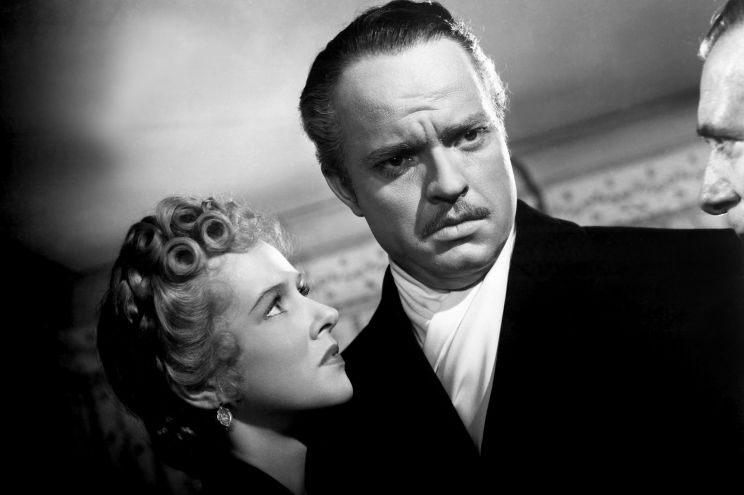
Friday Flix Movie Review: Citizen Kane
What if we say we want the old classics back, it wouldn’t be wrong. Classics are always gold! They always are remembered through class and phenomenal acting. Old classics have always been different from the conventional movie cinema where there is glamour; where there is action (I am not saying it’s bad, I am just saying that I want the older taste to the cinema back!) Somehow we do feel those movies being slow. But today we are going to revive our memories and present you a review of America’s classic drama tale, Citizen Kane!

Cast And Crew Citizen Kane
Citizen Kane is a 1941 American drama film by Orson Welles, its producer, co-screenwriter, director, and star. According to many critics and fans, it is considered to be one of the greatest films ever made. Moreover, a fun fact is that it was Orson’s first feature film. Citizen Kane topped the American Film Institute’s 100 years movies list during 1998. The movie also managed to claim consecutive British Film Institute Sight & Sound polls of critics. Citizen Kane was also nominated for Academy Awards in nine categories. And won an Academy Award for Best Writing, the original screenplay was by Herman J. Mankiewicz and Welles.
The movie cast includes Orson Welles himself, along with Joseph Cotten, Dorothy Comingore, Everett Sloane, Ray Collins, George Coulouris. The cast also includes Agnes Moorehead, Paul Stewart, Ruth Warrick, Erskine Stanford, and William Alland. The music was by Bernard Herrmann and the cinematography was by Gregg Toland.
Plot
The film opens with an exceptional picture of a distant, hazy-covered stronghold on a hill. It’s an exemplary gothic shot and goes far towards setting up Citizen Kane’s mood. We rapidly discover that this spot, called Xanadu, is the home of America’s Kubla Khan. Charles Foster Kane (Welles), a one-time newspaper magnate who might have become President notwithstanding an ill-advised extramarital affair. Xanadu, in the expressions of the fake newsreel that gives a concise history of Kane’s life. It is simply the “costliest monument of a man to himself.”
Any similarity to The Ranch, William Randolph Hearst’s genuine San Simeon habitation, isn’t circumstantial.
Also Read: Friday Flix Movie Review: Nightcrawler
The visually stunning treat Citizen Kane
Within minutes of the film’s strange, visually-stunning opening, Kane is dead, uttering the word “Rosebud” as death takes him over. His death, like his life, is a big news event, and the paper he owned, the New York Inquirer, is desperate to find out the meaning of his coded last word. Is it a woman he bedded? A horse he bet on? A beloved pet? Some long-lost, unfound love? The truth, which isn’t revealed until the closing scene, represents one of the all-time greatest motion picture ironies and leads us to believe that, on some level, Kane regretted not having led a simple, normal life.
Also Read: Best comedy movies of 2021
Spoilers Citizen Kane
After showing Kane’s death, Citizen Kane presents a ten-minute “Newsreel” which detailed the achievement of the man who was greater than life. Then, as a reporter (William Alland) from the investigation to explore the past Kane to learn the meaning of Rosebud, the history of Mogul unraveled through a series of expanded flashbacks representing non-chronological stories that sometimes overlap.
The main revelation
When the story was revealed, we saw Kane, assisted by his closest friend, Jedediah Leland (Joseph Cotton), built the Empire of the National Newspaper from one small piece of paper with a circulation of less than 30,000. To do this, he displays the same part with cruelty and generosity, is willing to lose 1,000,000 dollars a year to win the circulation war. The new Inquirer specializes in big news headers that do not always represent the truth. When he married Emily Norton (Ruth Warrick), President’s nephew, Kane was one of the most powerful men in America – a public giant with a design in the White House.
The end for Kane
Finally, Kane moved to the political arena, but his offer for the governor’s office crashed and burned when his rival, Jim Gettys boss (Ray Collins), exposed the affair of Kane with Susan Alexander (Dorothy Comore). After this failure, Kane divorced her first wife, married Susan, then entered exile at the Xanadu Palace which was secluded and unfinished. As the day passed, he became increasingly bitter and less approachable, until Susan, was tired of Xanadu’s isolation, leaving it. Alone and not loved, Kane awaits inevitable death.
The main idea
Throughout the movie it was given that everyone wanted to know about dying Kane, “Rosebud,” the newsreel editor assigned Thompson, a reporter, to find out what it meant. Thompson was played by William Alland with a selfless performance; He triggered every flashback, but his face was never seen. He questioned the alcoholic mistress Kane, a sick old friend, his rich partner, and other witnesses, while the film loop through time.
The Rise and Fall of Greed
As a classic film, Citizen Kane is a strong dramatic story of the use and abuse of wealth and power. This is a classic American tragedy about a vibrant man, vision, and greed, which encourages himself until he brings the ruins on himself and around him. This film is a visual work, a brave corner kaleidoscope, and an amazing picture that has never been tried before, and has never been equalized since then. There was a low-angle shot that was very effective at the end of the film where Kane destroyed Susan’s room. Cinematographic documentary, light vision, devoted all parts to Citizen Kane. If there is another film approaching this almost perfect art, Citizen Kane will take all credit!
The movie is considered to be one of the movies that are way ahead of its time. The move was particularly praised for Gregg Toland’s cinematography, Robert Wise’s editing, Bernard Herrmann’s music, and its narrative structure, all of which have been considered innovative and precedent-setting.
If you like this Friday Flix review you can also check these
IMDb Ratings: 8.3/10
☆☆☆☆☆☆☆☆☆☆ 8.3/10




